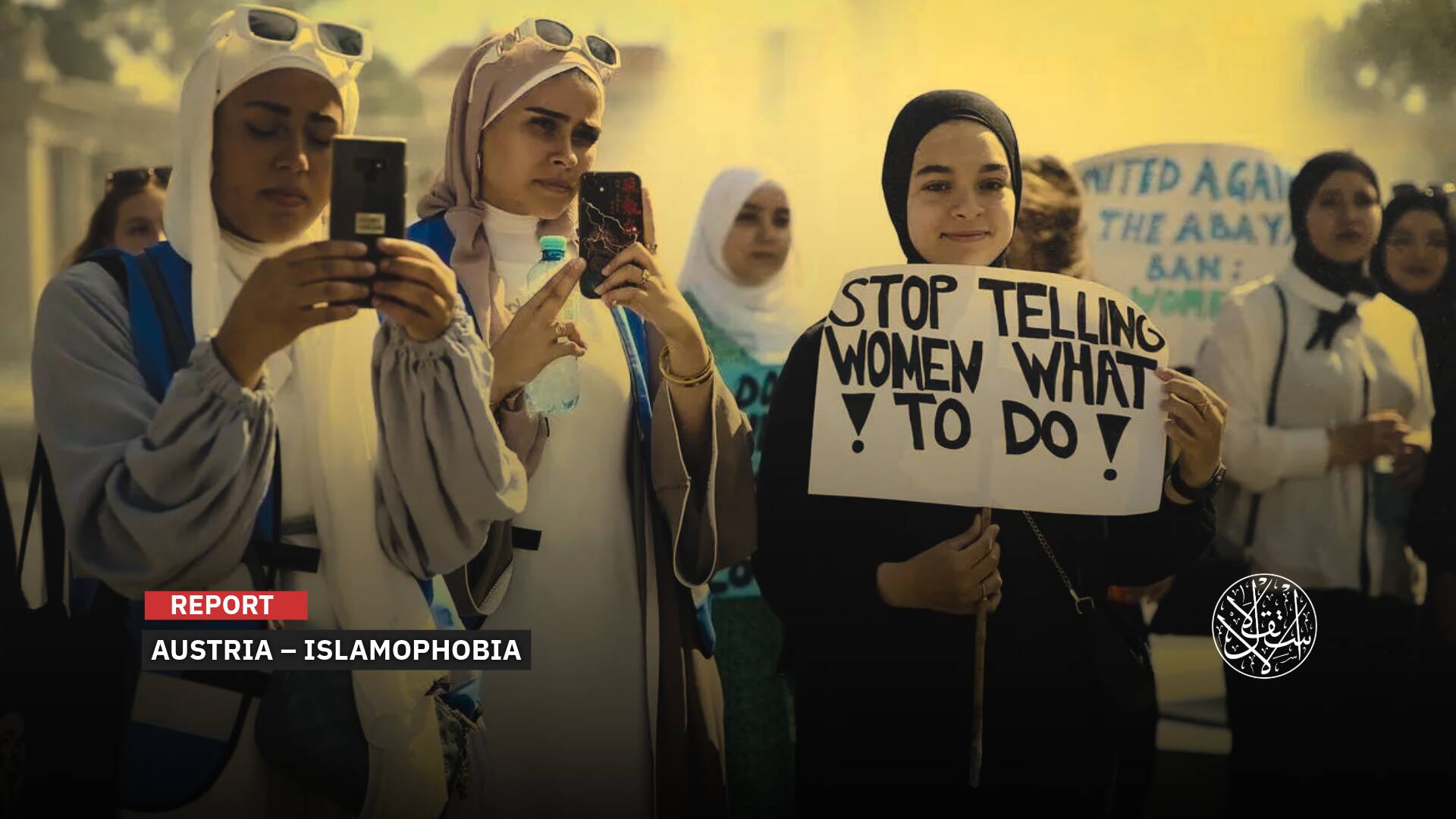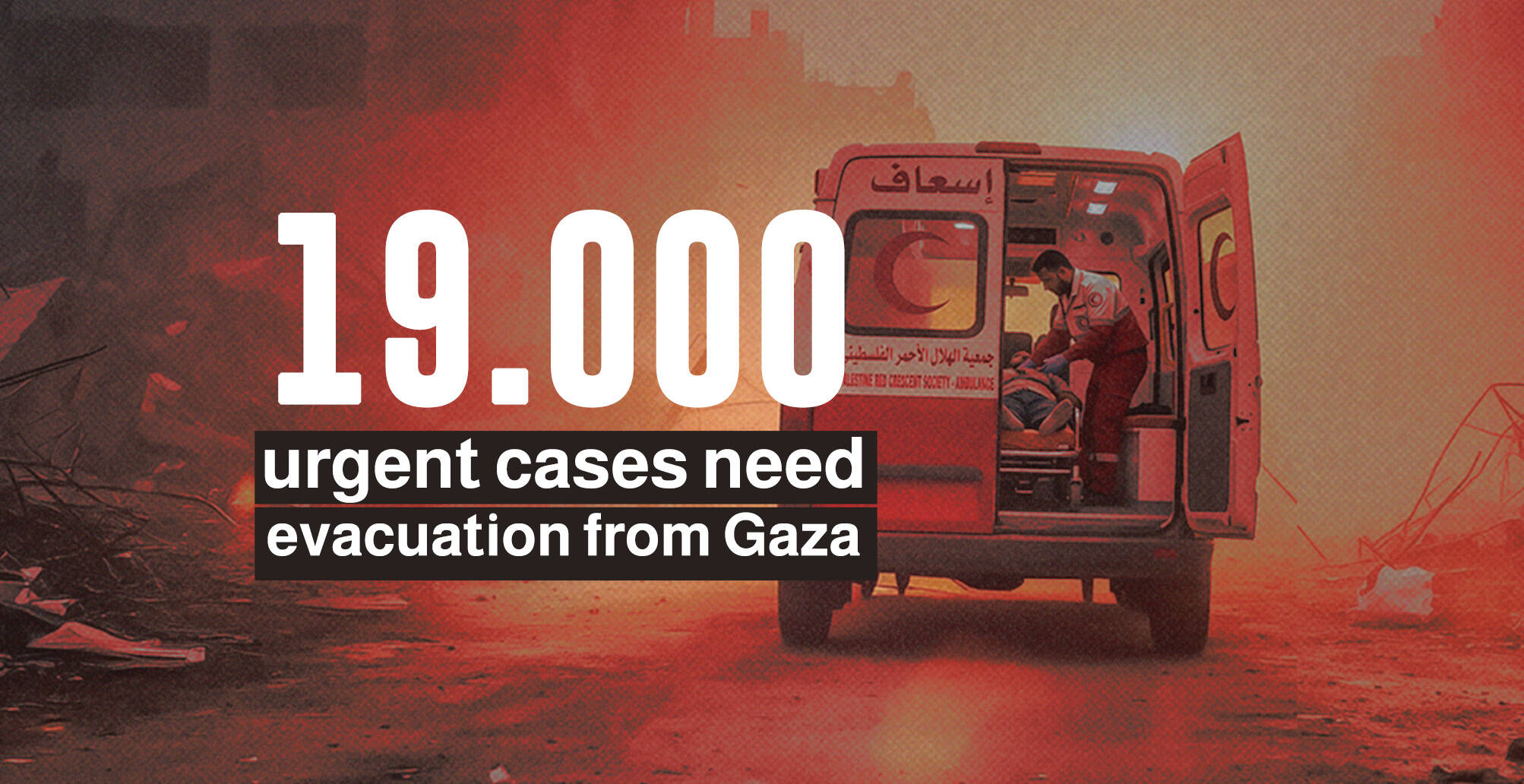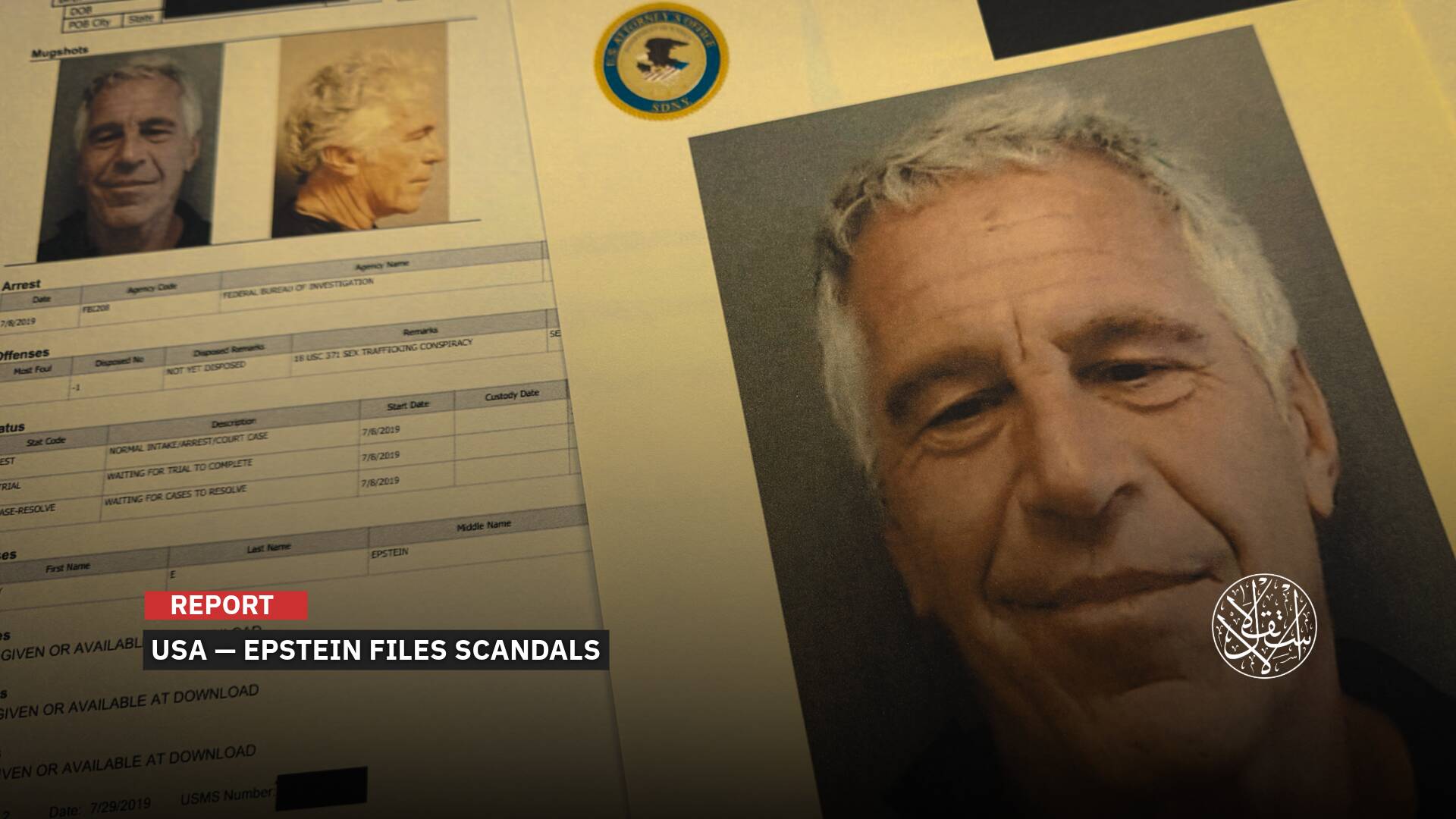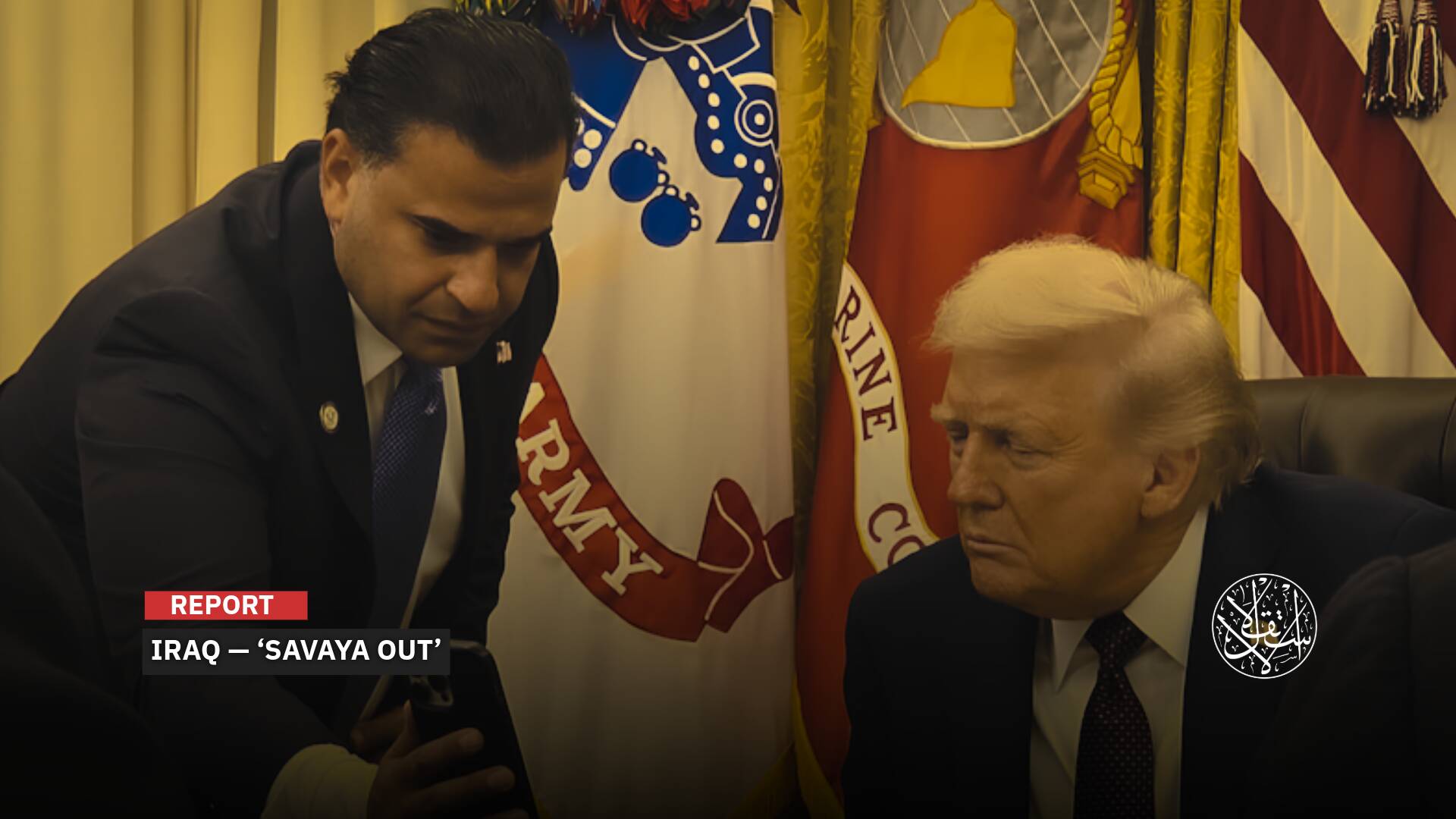How Muslim Women in the U.S. Are Fighting to Regain Their Violated Rights

In the summer of 2020, hundreds of thousands of people across the United States protested the killing of George Floyd, an unarmed black man who was killed while in police custody.
In the aftermath of those protests condemning racism and police brutality in the country, more than 10,000 people were arrested. Among those arrested was a young Muslim woman named Alaa Massri (18 years old).
However, what distinguished Ms. Massri’s arrest from the others was that she was asked to take off her hijab in order to take a picture of her detention. Although the young woman explained to the officers that the hijab is a religious duty and that she would not take it off, no one listened to her, and instead, someone pulled the hijab off her head, and the photo was taken, as reported by Middle East Eye website.
After Ms. Massri’s arrest, more than 330,000 people signed a petition condemning her treatment by the country’s law enforcement agencies, especially since each state in the U.S. has its own policy in dealing with hijab during arrests.
Ms. Massri said she was sure something had changed because five months after her arrest, she received a call from a friend in prison, who told her he had been with a veiled Muslim woman who had just been arrested, but they had not removed her hijab. In November 2022, two Muslim women won their own battle over the issue in New York City.
Although there are federal laws in the U.S. to protect a woman’s right to continue wearing a hijab upon arrest, there are no laws preventing officers from removing it or requiring them to do so.
Hijabs may be worn in U.S. passport photos, for example, and a majority of states permit religious exceptions for wearing a head covering in driver’s license photos, according to the ACLU. Religious exceptions for booking photos, though, are less common.
Systematic Violation
The Council on American-Islamic Relations (CAIR) reported that a Muslim woman in Fayette County, Kentucky, was forced to remove her hijab after being arrested and detained at the Fayette County Detention Center on July 17.
It called, in a July 21 press release, for redress through further investigation into the alleged mistreatment of Muslim women and clear policies allowing people of faith to keep their headscarves while in detention.
In response to CAIR’s complaint, Scott Colvin, director of the Fayette County Detention Center, said the prison would change the way it treats people who wear religious head coverings.
Colvin said the current policy requires people to remove head coverings of all kinds, regardless of whether they are being worn for a religious reason or not, so that the person can be searched and to properly capture an image of the arrestee’s full face.
According to CAIR, the University of Kentucky police stopped the woman, an immigrant Iraqi doctor, because her headlights were not on.
However, she was later arrested over an unpaid 2021 fine, LEX 18 TV channel reported.
“She said, ‘I’m Muslim. I’m wearing this for religious reasons. Please respect my rights,’ but her rights were sadly not respected,” said Edward Ahmed Mitchell, CAIR’s national deputy director.
CAIR stated that the woman was shackled and detained for hours, as well as forced to take off her hijab in a public room for a photo of the confinement despite requests to be moved to a private location.
The woman also told CAIR that officers asked her several times about her religion and put her in a room with half a wall that did not cover her head.
CAIR said the woman was released on $100 bail, and all charges against her were dismissed prior to trial.
“We live in a society where there are people whose rights are affected every day. We need to hold our government representatives accountable to ensure that they are following the law,” Roula Allouch, a women’s attorney and national board chair for CAIR, told the Lexington Herald-Leader.

Restoration of Rights
Last June, a Muslim woman from Grand Rapids, Michigan, sued the Kent County sheriff’s office because she had to remove her hijab to get a booking photo at the detention center.
In December 2020, Muslim female prisoners filed a lawsuit against the Michigan State Penitentiary Department for forcing them to remove their hijabs for booking photos.
Fox2 TV channel stated that more than 15 Muslim prisoners filed a lawsuit against the prison administration because of their published photos on its website.
In 2018, the New York Police Department was ordered to pay $180,000 to three women who were forced to remove their hijabs for booking photos, The Daily News reported at the time.
In 2020, in an effort to settle the lawsuit, the New York Police Department agreed to change its policy and allow religious women to be photographed while wearing a hijab, as long as their faces are uncovered.
In 2019, a new policy on how to treat female Muslim inmates in Minnesota was created in the wake of a six-figure settlement with a woman there who was forced to remove her hijab after an arrest over a traffic violation, The Star Tribune reported.
In 2017, the Long Beach, California, city council agreed to pay $85,000 to settle a federal lawsuit brought by a Muslim woman named Kirsty Powell, whose hijab was pulled off by a male officer while in police custody.
Police officials ignored Kirsty’s repeated demands that a policewoman deal with her while she was in custody, and she was denied a night’s rest of the headgear she was wearing.
Her lawsuit in 2016 prompted the Long Beach Police Department to reverse its policy banning women from wearing headscarves.
In 2014, Ramsey County updated its policies to ensure Muslim women who wear hijabs are not forced to remove them in front of men, and the county now offers approved hijabs for Muslim women in prison.
While progress is being made in police departments across the country, women in other parts of the U.S. are still forced to remove their hijabs.
The First Amendment of the U.S. Constitution protects several basic freedoms in the U.S., including freedom of religion, freedom of speech, freedom of the press, the right to assemble, and the right to petition the government.
In 1990, a high-profile case, Employment Division v Smith, led to the Supreme Court ruling that the First Amendment does not protect individuals engaging in illegal acts as part of a religious ceremony.
Following the ruling, in 1993 Congress passed the Religious Freedom Restoration Act, which ensures that interests in religious freedom are protected.
In 2000, Congress passed the Religious Land Use and Institutionalized Persons Act (RLUIPA), which prohibits the government from imposing a substantial burden on prisoners’ religious practices unless officials can show a compelling need for the restrictions.
Discrimination and Marginalization
Particularly since September 11, Islamophobia has intensified more and more in mainstream American society, which regards Muslims and Islam as otherworldly and alien forces.
Muslims are often inexplicably monitored, arbitrarily refused boarding planes, denied government welfare, bank accounts closed, and accused gratuitously without cause.
Although U.S. President Joe Biden’s administration still has some fear of discrimination and persecution against Muslims for voting considerations in the presidential election, that administration may apparently do some good things toward Muslims.
However, mainstream American groups continue to display mistrust, fear, discrimination, and ambivalence and increasingly impose restrictions on Muslims and Islam, making American Muslims feel more and more isolated and marginalized.
In many cases, Muslim women are prohibited from wearing the hijab. They have been harassed, expelled, denied access to public spaces, and discriminated against in other ways because of their hijabs.
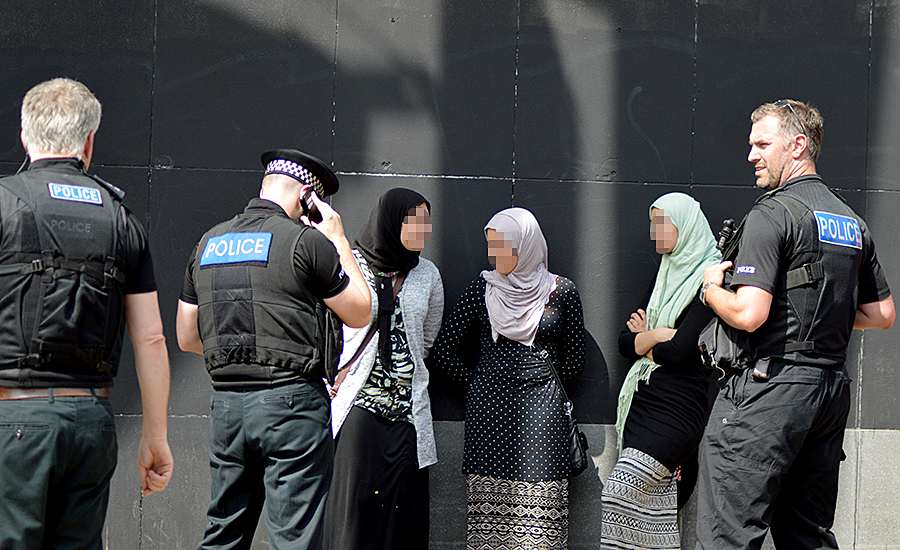
In October 2019, Muslim athlete Noor Alexandria Abukaram, 16, of Ohio State, was disqualified from participating in the cross country competitions for wearing a hijab.
Since 2016, she has participated in three high school sports while wearing a hijab. However, she was told that she needed special permission to participate in the competition while wearing a hijab.
In March 2019, the San Francisco Bay Area office reported that an Air Canada gate worker forced girl Fatima Abdul Rahman, 13 years old, to remove her hijab.
In October 2019, at San Francisco International Airport, a 12-year-old member of the U.S. squash team was forced to remove her hijab while boarding a plane.
A study found that Muslim women who wear the hijab are more likely to be discriminated against than Muslim women who do not wear the hijab.
“69% of women who wear the hijab report at least one incident of discrimination, compared to 29% of women who do not wear the hijab,” the study indicated.
Sources
- The hijab is mine: Muslim women take back their rights from US law enforcement
- Muslim woman says she was forced to remove hijab when UK police took her to Lexington jail
- Advocates say woman's religious beliefs violated during booking at Fayette County Detention Center
- NYPD will now allow people to wear religious head coverings in booking photos
- Muslim Woman Was Forced to Remove Hijab for Booking Photo After Arrest, Advocacy Group Says
- Long Beach Settles Lawsuit After Police Forcibly Remove Woman's Hijab


